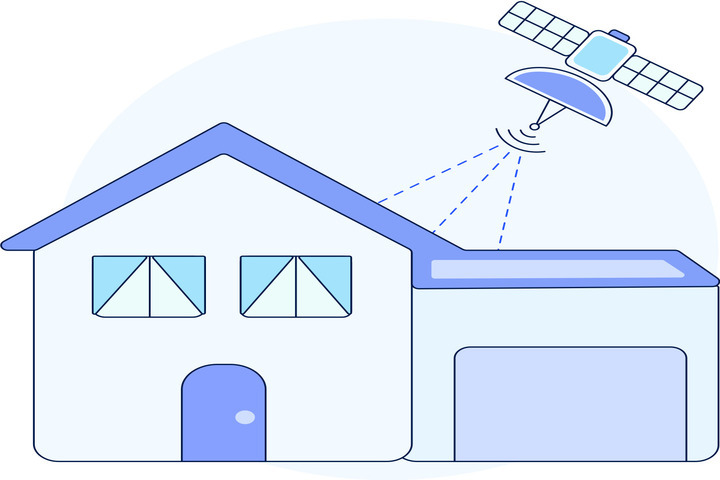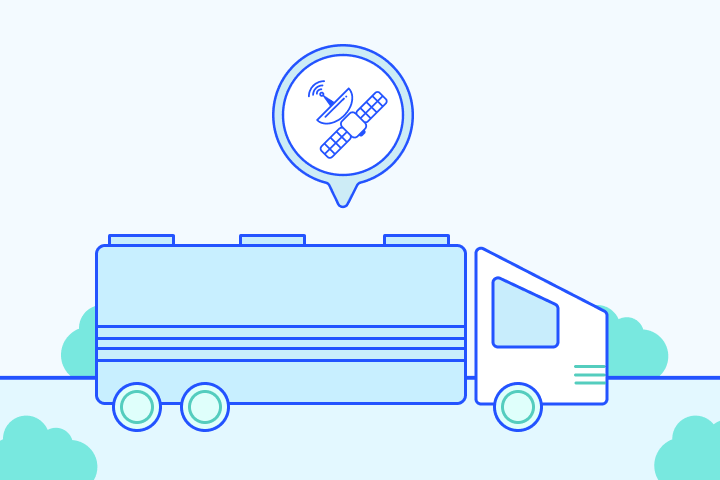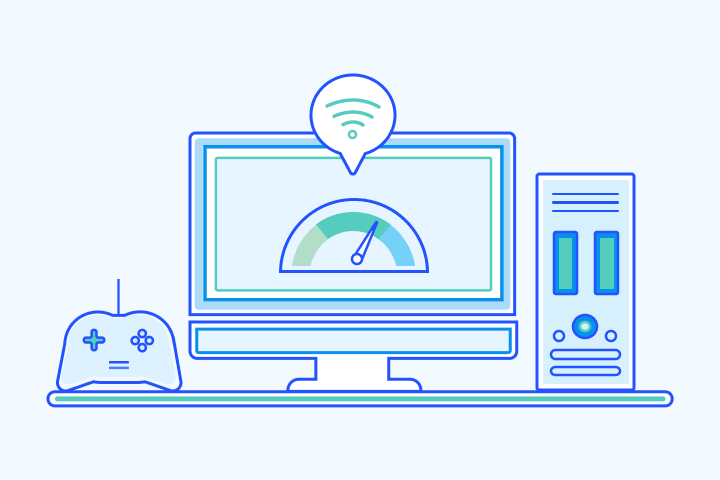Does Weather Affect Satellite Internet?

HighSpeedOptions prides itself on providing honest, quality content. While we may be compensated when you make a purchase through links on our site, all opinions are our own. Here's how we make money.
Table of Contents
Compared to other types of internet providers, satellite internet providers are more prone to experiencing connection issues during unfavorable weather conditions. To gain a deeper understanding of how weather can impact your satellite internet connection, keep reading as there are several factors at play.
How Weather Affects Satellite Connections
What makes satellite internet the most accessible connection type in the country is also one of its greatest weaknesses. Since the signals from satellites are transmitted through the air, they are prone to a variety of air disturbances.
Rainstorms, snow, and heavy winds can deflect and disrupt signal transmission, causing unstable speeds and intermittent connectivity. While traditional geostationary satellite internet is heavily impacted, newer LEO satellite services, like Starlink internet, may experience these weather effects differently due to their closer proximity to Earth. If there is severe weather in the area of your provider’s internet hub where it uplinks with the satellite, you may experience slower speeds and greater delay even if the weather is fine in your immediate area.
Satellite Equipment Exposure to the Elements
Most of the equipment required to access satellite internet must be mounted outdoors. While the equipment is resilient, extreme weather can have a major impact on your satellite dish. Whether it’s hurricanes, floods, snow storms, or even tornadoes, they can damage it or even push it out of alignment.
We recommend at least visually inspecting your dish once a month, but it will sometimes require a bit more to maintain your satellite dish. Doing so keeps it working optimally and alerts you to any physical issues with the dish.
Does Weather Affect Hughesnet and Viasat Services?
Viasat internet and HughesNet internet are two of the best satellite internet providers you have to choose from in the United States. While they rely on the same source of power (Ka-band wavelengths), each provider sets different expectations for their customers during bad weather.
According to Hughesnet, heavy cloud coverage, storms, or even bad weather in other locations (depending on where your ground hub is located) can cause an outage.
Viasat states that their service isn’t likely to be affected by things like cloud cover, light snow, or rain. However, severe storms can cause a temporary loss of service.
Each provider has pros and cons, so it’s best to do research outside of their websites as well. Look at customer reviews from your area to get a better idea about what you can expect.
How You Can Improve Your Connection During Storms?
Even though severe weather can affect your satellite internet connection, there are always a few steps you can take to shore it up during a storm.
Restart Your Router
Sometimes the best thing you can do to improve your internet is the easiest thing. Restarting your router is one of the easiest ways to begin troubleshooting internet issues. Routers get congested, become less efficient, and just need to be reset. Check with your provider or equipment manufacturer about the best way to perform a restart. Give it a good ten minutes to reboot and restart before checking your service.
If you want to take preventative steps, restart your router on a monthly basis. Set a reminder on your phone or write it down somewhere you know you’ll see it to stay on top of it.
Move Closer to the Router
As you travel further from your router, the signal strength drops and your internet speed is going to slow down. The best thing you can do during a storm is to get as close to your router or modem.
Also, like those storm clouds, furniture and walls can affect the connection between your device and your router. Installing WiFi extenders in your home will boost the signal and provide optimal speeds throughout your house.
Upgrade Your Internet Plan
Finally, you can always upgrade your internet plan. Have a look at your internet lifestyle needs to determine what speed best suits you. Since different activities require different bandwidths, taking this step is going to help a lot as you weigh your options.
If you only perform tasks like checking emails, paying bills, and streaming from one device, then a basic package might work for you. If you are an online gamer, however, and use multiple devices at the same time, then you’re going to see better results with a higher-speed plan.
Next Steps
Sometimes, there isn’t much you can do about poor satellite internet performance during inclement weather. To keep your connection and equipment working as efficiently as possible, we encourage you to take steps now to speed up your internet. In addition, there are tasks you can perform specifically to improve your satellite internet performance.
Find providers in your area
Table of Contents





